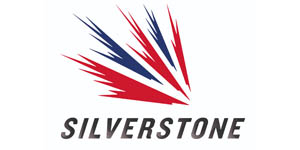Due diligence is a vital process that is essential when buying a business. It refers to the thorough investigation of a company’s financial and legal records, operational procedures, and other critical information that can impact the business’s value or your investment decision.
Conducting due diligence allows potential buyers to verify and validate the information provided by the seller, assess the risks and opportunities involved in the transaction, and make an informed decision about the acquisition. It helps to identify any issues or potential problems that may arise after the purchase and provides a clear understanding of the business’s operations, financial health, and prospects.
The due diligence process can uncover any hidden liabilities, legal disputes, or other critical issues that the seller may not have disclosed, which can significantly impact the business’s value. By conducting due diligence, buyers can negotiate a fair price based on the business’s true value and make an informed decision about the investment.
What are the main categories of due diligence reporting?
The main categories of due diligence reporting are as follows:
Financial due diligence: This type of due diligence involves examining the target company’s financial statements, tax returns, accounting records, and other financial data to assess the accuracy of financial information and identify any potential risks.
Legal due diligence: Legal due diligence focuses on verifying the target company’s legal structure, contracts, licenses, permits, litigation history, and other legal documents to identify any legal risks and liabilities.
Commercial due diligence: Commercial due diligence assesses the target company’s market position, competitive landscape, customer base, and growth potential to evaluate the commercial viability of the investment and identify any potential risks.
Operational due diligence: This type of due diligence assesses the target company’s operational procedures, including its supply chain, manufacturing processes, and IT infrastructure, to identify any potential operational risks and opportunities.
Environmental due diligence: Environmental due diligence examines the target company’s compliance with environmental regulations and identifies any potential environmental liabilities that may arise from the business’s operations.
Human resources due diligence: Human resources due diligence assesses the target company’s employment contracts, employee benefits, labor laws compliance, and other HR-related matters to identify any potential risks and liabilities.
A thorough due diligence audit also looks at:
Intellectual property: The audit may review the target company’s intellectual property portfolio, including patents, trademarks, copyrights, and trade secrets, to identify any potential legal or operational risks.
Market analysis: The audit may include an assessment of the target company’s market position, customer base, competitive landscape, and growth potential to evaluate the commercial viability of the investment and identify any potential risks or opportunities.
Assessment of the key individuals: A most crucial aspect of due diligence is the assessment of the key individuals within a business – the ‘rain makers’, which often includes the directors, partners, or owners of the business. These individuals play a critical role in the success of the business. They are responsible for the overall direction, strategy, and performance. Therefore, it is essential to assess their competency, experience, and reputation before making any purchase decisions.
A thorough due diligence will:
- Identify any conflicts of interest: Do they key individuals have other business interests or affiliations that could potentially conflict with the interests of the business being acquired. Conducting due diligence can help identify any such conflicts of interest and ensure that the buyer is fully aware of them.
- Assess their track record: Their performance and track record can give valuable insights into the potential success of the business being acquired. By analyzing their past successes and failures, the buyer can gain a better understanding of the strengths and weaknesses of the business.
- Evaluate their management style: The management style of the key individuals can significantly impact the culture and performance of the business. Conducting due diligence can help the buyer assess their leadership style and determine whether it is a good fit for the business being acquired.
- Identify any legal or regulatory issues: Do these individuals have legal or regulatory issues that could impact the business being acquired. Due diligence can help identify any such issues and ensure that the buyer is fully aware of them before making any purchase decisions.
The scope of the due diligence report may vary depending on the nature of the transaction, the size of the target company, and the specific requirements of the buyer. The due diligence report aims to provide a comprehensive assessment of the target company’s overall health, identifying any potential risks and opportunities that may impact the investment decision.
Good due diligence can help you achieve the following objectives:
Assess the target company’s value: Due diligence provides detailed information on the target company’s financial performance, legal standing, and operational efficiency. This information can help you evaluate the company’s value and determine if it is worth investing in.
Identify potential risks and opportunities: Due diligence enables you to identify any potential risks or issues that may arise from the acquisition, such as legal disputes or environmental liabilities. It also helps you uncover potential opportunities, such as untapped markets or synergies with your existing business.
Negotiate a fair price: By gaining a clear understanding of the target company’s financial and operational performance, you can negotiate a fair price based on the company’s true value.
Plan for integration: Due diligence helps you plan for post-merger integration by identifying potential challenges and opportunities for combining the target company’s operations with your existing business.
Comply with legal and regulatory requirements: Due diligence enables you to identify any legal or regulatory issues that may arise from the acquisition and ensure that you comply with all legal and regulatory requirements.
Make an informed decision: By conducting proper due diligence, you can make an informed decision about whether to proceed with the acquisition, renegotiate the terms of the deal, or walk away from the transaction.
Due diligence when buying a business – In summary
Due diligence is an essential process when buying a business. It involves conducting a thorough investigation of the target company’s financial, legal, operational, and commercial aspects to identify any potential risks or opportunities associated with the acquisition.
Proper due diligence can help the buyer evaluate the company’s value, negotiate a fair price, plan for post-merger integration, comply with legal and regulatory requirements, and make an informed investment decision.
The scope and depth of due diligence may vary depending on the size and complexity of the target company and the specific requirements of the buyer, but the aim is always to provide a comprehensive assessment of the target company’s overall health and identify any potential risks and opportunities that may impact the investment decision.
Capcon Argen provides clients with critical fact finding and due diligence services to ensure that conflicts of interest, data vulnerabilities, and imminent threat events are appropriately identified, reducing risk, minimising disruption, and developing effective management strategies.
Services include:
- Pre-transaction Due Diligence
- Personnel Screening
- Political Due Diligence
- Cyber Risk
- Financial Risk, Transactions & Restructuring
- Forensic Risk Assessment & Management
- Internal Audit & Assurance
- Regulatory & Operational Risk
- Strategic & Reputation Risk Management
- Regional Risk Assessment
- Forensic Analysis
Through our associated business, Beavis Morgan, we also offer Financial and Commercial Due Diligence, with recommendations based on findings and advice bespoke to you and your business.
With a heritage stretching back to the early 1960s, Capcon offers an exceptional level of experience in helping businesses manage risk and grow profit.
Find out more and get in touch.






















